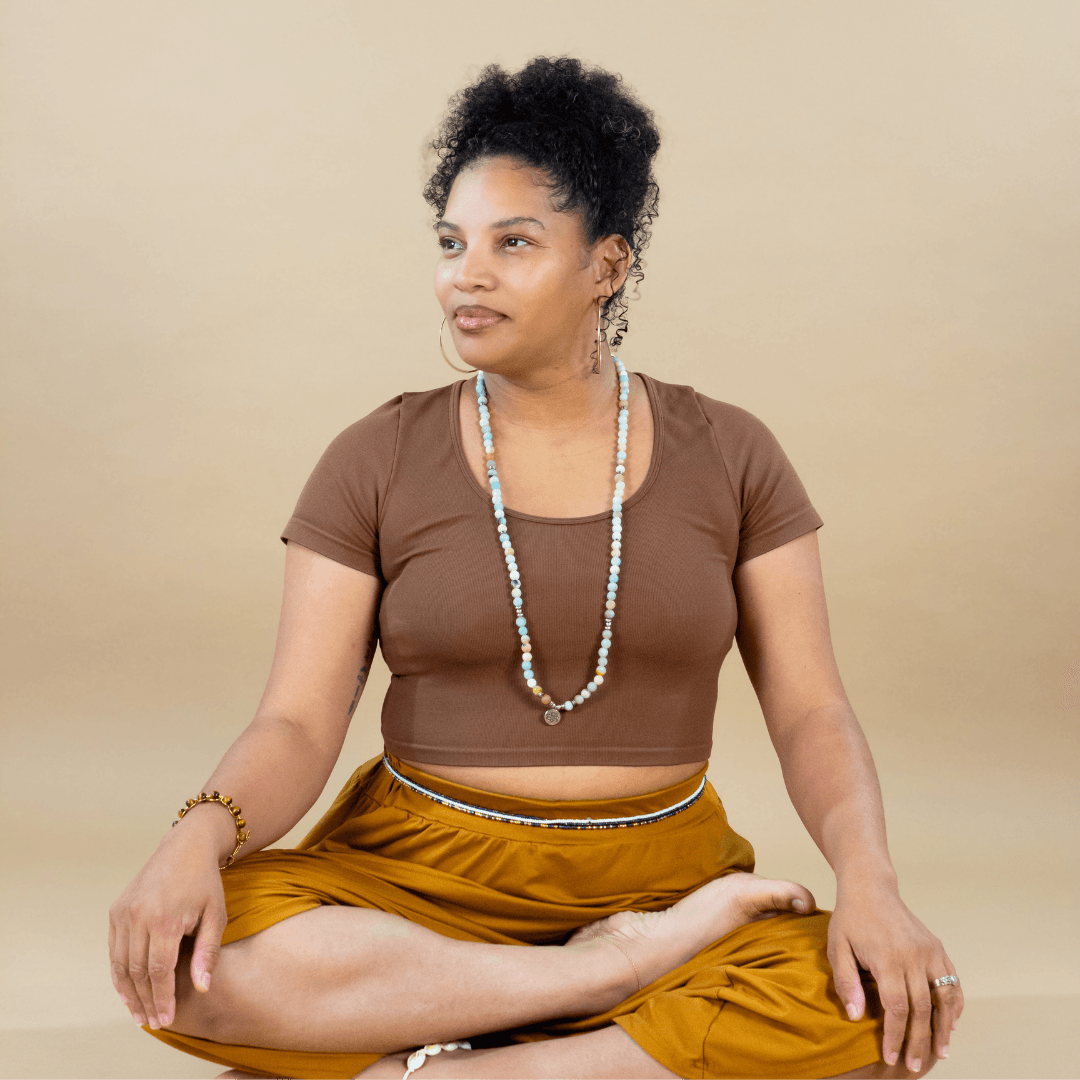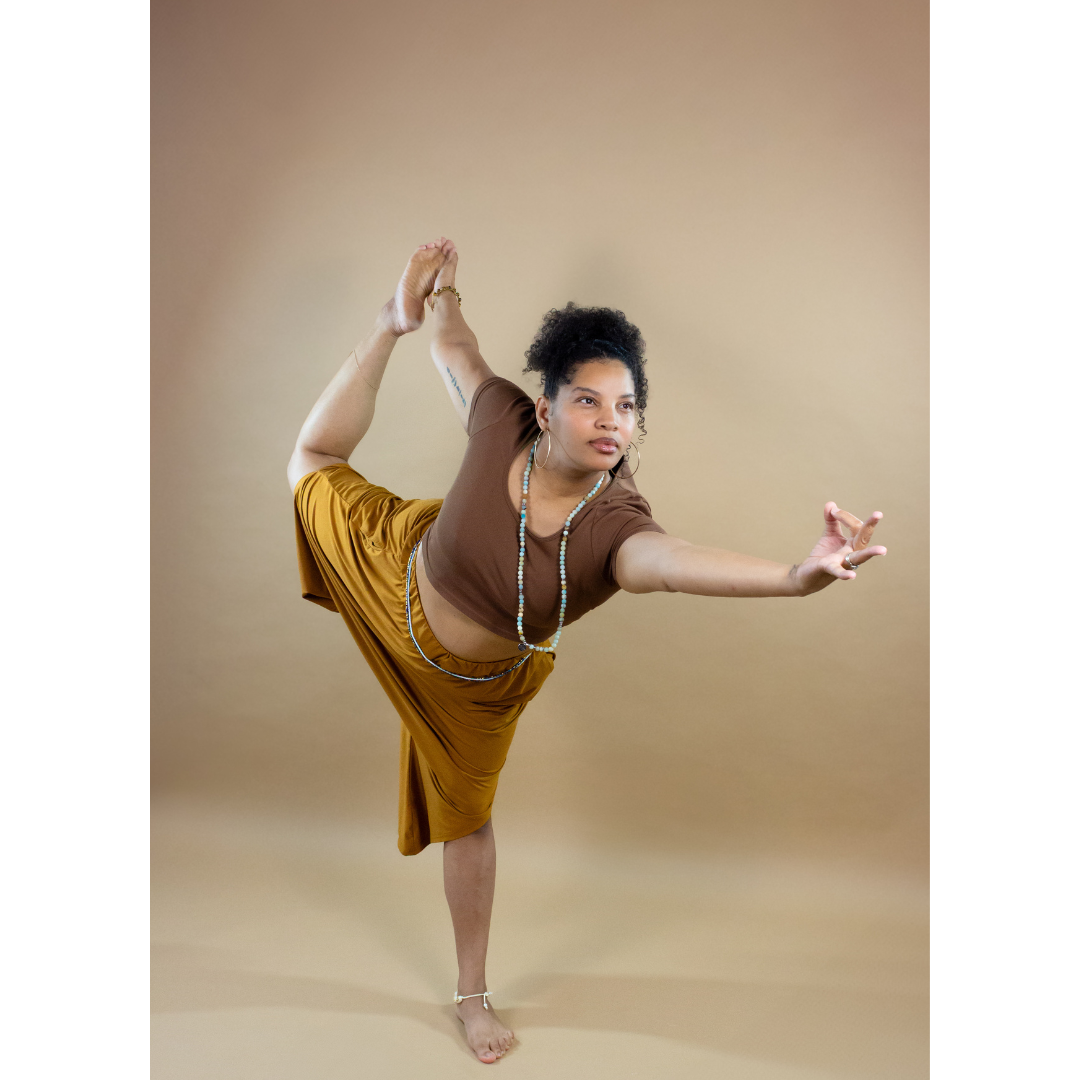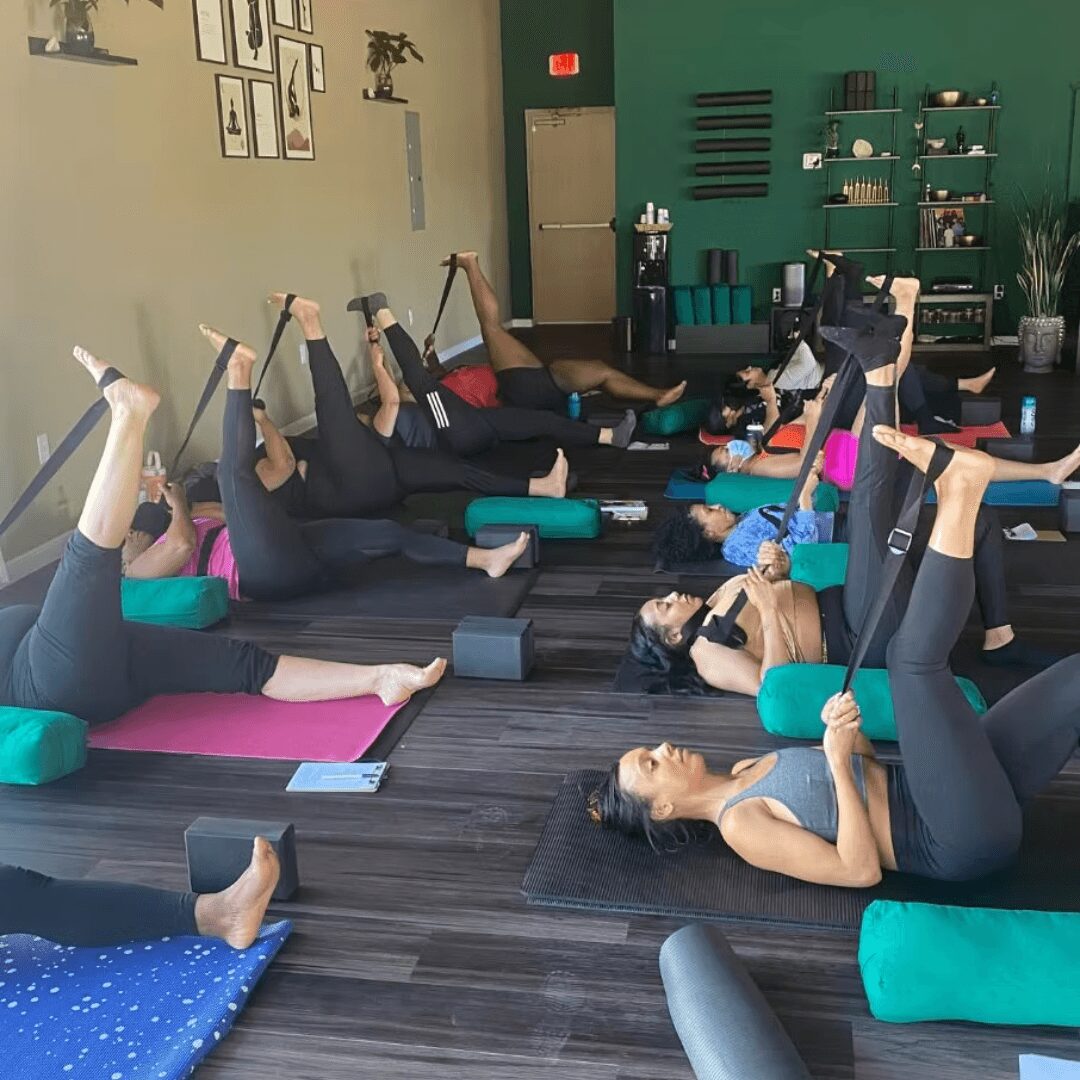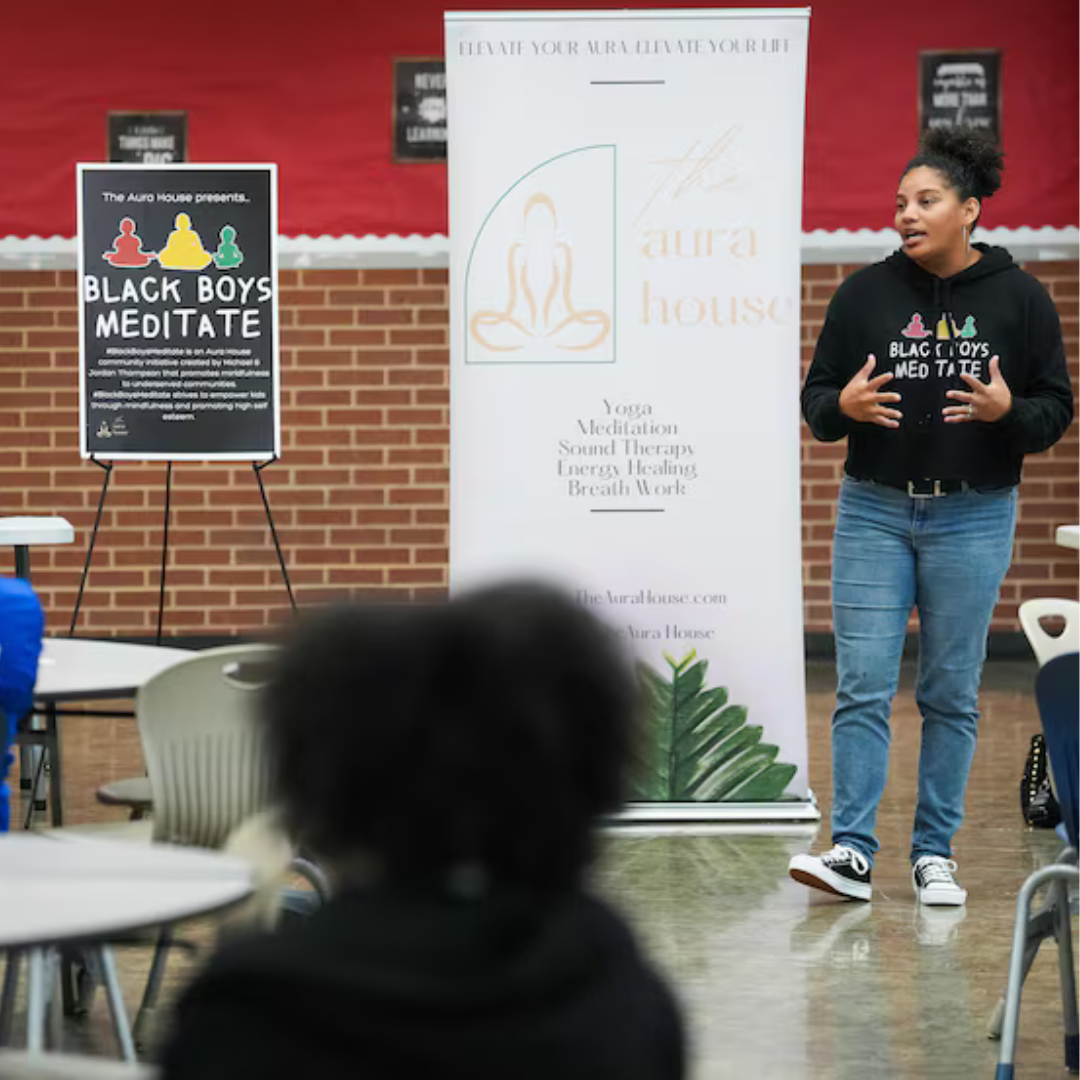

Helsa Thompson shared their story and experiences with us recently and you can find our conversation below.
Helsa, we’re thrilled to have you with us today. Before we jump into your intro and the heart of the interview, let’s start with a bit of an ice breaker: What do you think others are secretly struggling with—but never say?
I think so many people secretly struggle with slowing down. Not just resting, but truly slowing down enough to feel their feelings, hear their own thoughts, and sit with silence. We live in a culture that glorifies being busy and constantly ‘doing,’ so when we finally pause, it can feel uncomfortable—even threatening. Silence has a way of bringing up the emotions we’ve been avoiding and the truths we’d rather not face.
But on the other side of that discomfort is freedom. When we allow ourselves to slow down, we create space to process what we’ve been carrying, to breathe, to reconnect with ourselves, and to hear God’s voice more clearly. The very thing that feels hardest—stillness—often becomes the gateway to peace, clarity, and real healing.
Can you briefly introduce yourself and share what makes you or your brand unique?
My name is Helsa Thompson, and I am the founder of The Aura House, a trauma-informed yoga and wellness space dedicated to helping my community heal through yoga, meditation and mindfulness. As an RYT 500 yoga teacher, educator, and mother of three, I blend over 15 years of experience in the field of education adn DEI with a deep passion for creating safe and inclusive spaces for growth and restoration.
What makes The Aura House unique is that we go beyond the yoga mat—we focus on healing, mindfulness, and empowerment, particularly for women and underrepsented communities. Our work is rooted in accessibility, cultural awareness, and the belief that yoga is more than poses; it’s a tool for transformation and a way of life.
Right now, I am excited about expanding The Aura House’s impact through partnerships and collaborations. We launched our non-profit, Black Boys Meditate, which I co-founded wiht my sons, and I’m working to solidify partnerships with school districts and community organizations to expand our Mindful Kings program. We want to help youth develop mindfulness, emotional awareness, and healthy coping tools at an early age.
My mission is to make yoga and mindfulness accessible, inclusive, and deeply impactful—meeting people where they are, equipping the next generation with tools for resilience, and reminding us all that healing is possible.
Thanks for sharing that. Would love to go back in time and hear about how your past might have impacted who you are today. What part of you has served its purpose and must now be released?
The part of me that has served its purpose and now must be released is my Superwoman Syndrome—the perfectionism, overachieving, and constant multitasking that once defined me. For years, those qualities helped me excel in my career, climb the corporate ladder, and juggle countless responsibilities all at once. They gave me a sense of accomplishment, but they also kept me in a cycle of stress, exhaustion, and always needing to prove myself.
Now, I realize those patterns are no longer serving me. As a mom, I don’t want to pass down the idea that worth is tied to doing it all or doing it perfectly. Instead, I want to model balance for my children. I want them to see that while hard work and hustle have their place, so do rest, stillness, and slowing down. Both are needed for a healthy, full, and intentional life.
What fear has held you back the most in your life?
The fear that has held me back the most in my life has been the fear of failure. Growing up with a single mother, I watched her sacrifice so much, and I carried the weight of not wanting her hard work to be in vain. That fear followed me into adulthood and into motherhood. As a mom raising Black boys in America, I felt an enormous responsibility to protect them and make the “right” choices, to ensure they are safe and set up for success.
But over time, I realized that this fear was holding me back. It made me afraid to make mistakes, afraid to take risks, and even inadvertently placed my own fears onto the hearts of my sons. I had to acknowledge that this fear was limiting—not just for me, but for the example I was setting for them.
Letting that fear go has been transformative. It has allowed me to embrace imperfection, to see mistakes as opportunities for growth, and to show my children that it’s okay to stumble, learn, and keep moving forward. Now, I approach life with more courage, more presence, and more faith in my ability to navigate challenges while teaching my sons that resilience and self-compassion matter just as much as hard work and achievement.
Next, maybe we can discuss some of your foundational philosophies and views? What’s a cultural value you protect at all costs?
A cultural value I protect at all costs is the belief that healing is a communal act. In Black culture, our strength, resilience, and growth have always been rooted in community—whether through family, faith, or collective movements for justice. We’ve survived and thrived because we leaned on each other, lifted each other, and healed together.
That’s why at The Aura House, community is not just an add-on, it’s the heart of the work. Healing doesn’t happen in isolation—it happens in connection. When we come together, we remind each other that we’re not alone, we share our stories, and we create space for growth that ripples beyond the individual into families, neighborhoods, and generations.
For me, protecting this value means making sure that everything I do—whether it’s yoga, meditation, or mindfulness work—centers community and connection. Because it’s in that sacred space, where healing and community align, that true transformation is possible.
Before we go, we’d love to hear your thoughts on some longer-run, legacy type questions. Have you ever gotten what you wanted, and found it did not satisfy you?
Yes, I’ve definitely experienced that. For a long time, I equated success with status, education, and career achievement. I climbed the corporate ladder, earned the degrees—including an Ivy League education—collected certifications, and rose to senior executive titles. On paper, I had everything I thought I wanted. But instead of fulfillment, I felt an unshakable pressure to keep performing, achieving, and proving myself. The higher I climbed, the emptier I felt. Eventually, it led me to burnout.
I realized I had attached my worth to my achievements. I wasn’t doing things out of joy or purpose anymore—I was doing them because I thought I had to, in order to be seen as successful. That chase cost me my peace and left me feeling disconnected from myself.
Burnout forced me to reimagine what success looks like. I had to learn that my value isn’t tied to titles or accolades. Today, success feels softer and more grounded. It looks like living in my purpose, nurturing deeper connections, and slowing down enough to actually enjoy the fruits of my labor.
That shift is what gave birth to The Aura House. I wanted to create a space where others could also release the pressure to constantly ‘do’ and instead come back home to themselves—a space where healing, presence, and community are valued as much, if not more, than accomplishments. For me, that’s true success.
Contact Info:
- Website: https://www.theaurahouse.com
- Instagram: https://www.instagram.com/_theaurahouse
- Linkedin: https://www.linkedin.com/in/helsathompson/
- Facebook: https://www.facebook.com/aurahouseyoga
- Yelp: https://www.yelp.com/biz/the-aura-house-cedar-hill
- Other: https://www.tiktok.com/@_theaurahouse













